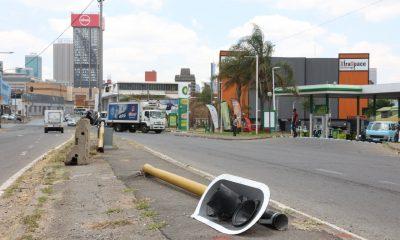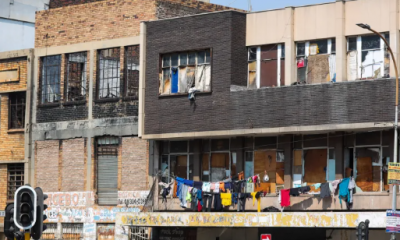411
Despite Six Distinctions, Teen Denied University Entry Due to Missing ID

Seventeen-year-old Emmanuel Ndlovu dreamed of becoming a doctor after earning six distinctions in his matric exams. But despite his academic success, he cannot register at a university — because he has no birth certificate or ID.
Ndlovu, a Johannesburg pupil, had aimed to study medicine at either the University of Cape Town or Wits. Instead, he’s been left stranded, unable to continue his studies or find proper work, due to unresolved issues with his identity documentation.
His situation stems from complications involving his late mother’s ID. Although she was a South African citizen, she was found to be sharing an ID number with another person — a problem that has persisted for years. As a result, her five sons, including Emmanuel, were never officially registered.
“I see my peers moving forward while I’m stuck in the same place,” said Ndlovu, who is now trying to survive by doing odd jobs.
He managed to attend school using a clinic card as proof of identity. For his matric exams, he secured proof of birth from Leratong Hospital in Krugersdorp to collect his results. But without official documentation, higher education remains out of reach.
His uncle, Emmanuel Ntimane, has made several attempts to help. He submitted an affidavit, DNA tests, and his naturalisation certificate to Home Affairs, confirming he is the half-brother of Ndlovu’s mother. But so far, nothing has worked.
“I’ve done everything I can,” said Ntimane. “All I want is for these boys to have a future.”
The family’s situation echoes a wider crisis. Thousands of people in South Africa face similar hurdles due to errors or delays in the Home Affairs system. A recent case saw the Pretoria High Court ordering the department to issue an ID and birth certificate to a woman who had spent her entire life stateless.
Thandeka Chauke from Lawyers for Human Rights says statelessness robs people of their basic rights — including access to education, healthcare, and employment. She explained that South African law entitles children to citizenship if one parent is a South African citizen at the time of birth. In 2020, the Constitutional Court reaffirmed this.
“Home Affairs is obligated to recognise this citizenship and take all necessary steps to make it official,” said Chauke.
However, these legal protections often fail in practice. Many remain in limbo, like Ndlovu and his brothers, who are now without a guardian after their mother’s passing.
The Department of Home Affairs has since requested details of the family to investigate their case.
Follow Joburg ETC on Facebook, Twitter , TikTok and Instagram
For more News in Johannesburg, visit joburgetc.com
Published Originally On Ground Up
Sourced:African Insider
Picture: Integrate Immigration



























